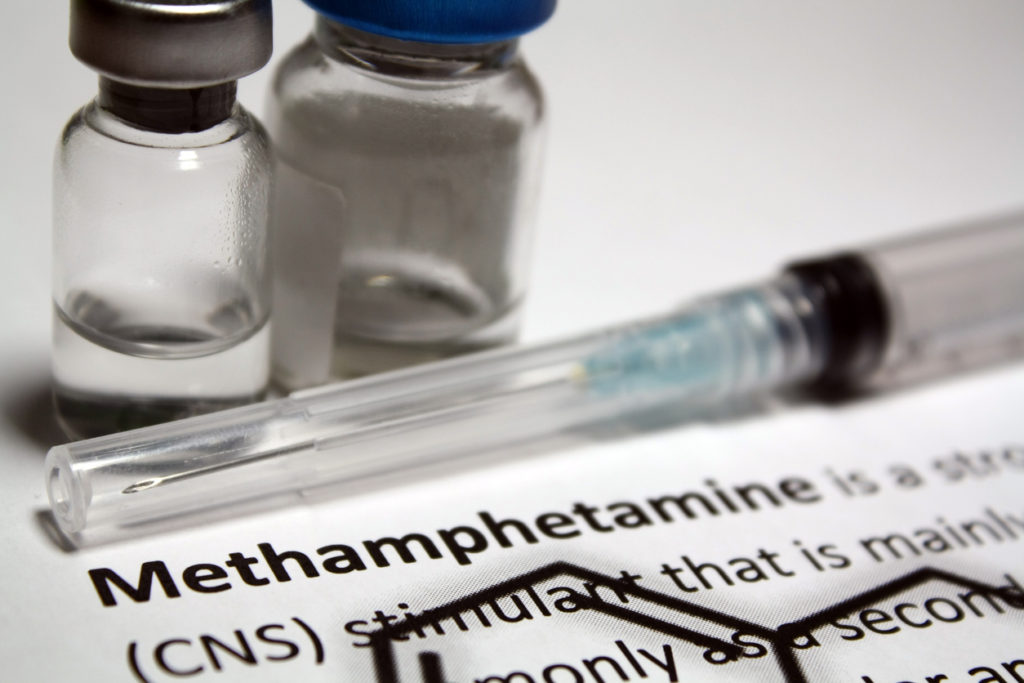This month we’re focusing on a difficult subject; drug addiction. It’s heartbreaking to hear the rising rates of drug addiction in our country and even worse to hear a loved one struggling with addiction. As dental professionals, we are trained to look for oral signs of drug abuse. While it may be a tough conversation, it’s vital to keeping our patients’ best interest and overall health top of mind. If you or someone you know is struggling with addiction, the Substance Abuse and Mental Health Services Administration (SAMHSA) National Helpline can help.

As the second most widely abused recreational drug, we’re going to focus on the specific oral health effects of Methamphetamine (Meth). “According to a 2008 study by the United Nations, approximately 25 million individuals around the world use methamphetamine. Between 2008 and 2014, however, the number of methamphetamine users more than doubled. Worldwide, as many as 52 million people between the ages of 15 and 64 are estimated to have used amphetamine-type stimulants for nonmedical purposes in 2014. (Dimensions)
Tooth Decay
Rampant tooth decay (“Meth Mouth”) is common in most individuals who abuse Meth long term. Dry mouth (xerostomia) and long periods of poor oral hygiene are common causes of such decay. In any population, dry mouth is a big risk factor for decay but Meth use can add to that risk. Meth itself is acidic and can lower the pH level of your oral cavity. If proper care is not taken to counteract the effects, decay will progress quickly. For patients in recovery from addiction, there are many steps we can take to help restore their teeth. Adding high concentration source of sodium fluoride will prevent new decay from beginning while we work to restore the existing decay.
Restoring Teeth
For patients recovering Methamphetamine addiction, completely restoring their teeth may not be financially feasible. Silver Diamine Fluoride (SDF) is a great alternative. SDF is applied topically and is approved for use as a desensitizing agent. It has been shown to arrest dental caries and can be used with regular sodium fluoride to create a short-term plan to control tooth decay. With the help of the dentist and hygienist, an individualized plan based on your needs and desires can be created. Restoring a patient’s oral health can feel like a long road ahead, but we will be with you every step of the way.

Lifestyle Habits
When preparing for successful restoration of teeth, lifestyle habits are important to consider in avoiding progression of decay. Tobacco use is common in those abusing recreational drugs. Our providers have resources and information to help quit tobacco use. Diet also has a significant impact on oral health; high sugar diets can accelerate decay. We are here to help with any and all modifiable risk factors to reduce the risk of future cavities.
No Judgement
Often times the result of rampant decay can leave many feeling ashamed or hopeless about their teeth, but we are always here to help. We offer no judgments and are only looking to provide the best oral health care possible. If you or someone you know is ready to restore their smile on their road to recovery, we would love to help. Don’t forget to visit our Facebook!
References / Resources:
Mouth Healthy – https://www.mouthhealthy.org/en/az-topics/m/meth-mouth
ADA – https://www.ada.org/~/media/ADA/Publications/Files/patient_55.ashx
Dimensions of Dental Hygiene Journal – https://dimensionsofdentalhygiene.com/article/Caring-for-Patients-Who-Abuse-Methamphetamine/
Substance Abuse and Mental Health Services Administration – https://www.samhsa.gov/find-help/national-helpline
